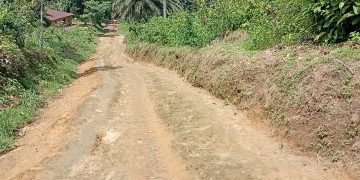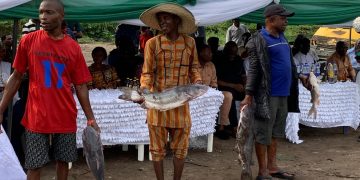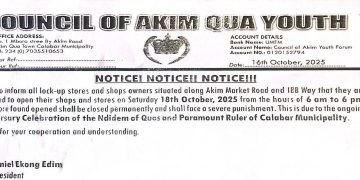By Asuquo Cletus
All is not well in the dense tropical expanse of Cross River State, where lies a community that time seems to have forgotten Ikot Okon Abasi within Odukpani Local Government Area.
For many residents here, the simple privileges most Nigerians take for granted electricity, clean water, and motorable roads remain distant dreams. Instead, they have come to accept a way of life defined by candles and lanterns, muddy footpaths, and treks to streams for water.
Their days begin early and end early, not by choice, but because light is a luxury they cannot afford not in terms of cost, but in access. For over seven years, this community has been plunged into absolute darkness.
What makes their reality even more painful is its irony. Cross River State is home to the Odukpani power station, a multi-million dollar facility meant to generate hundreds of megawatts of electricity. Yet, communities like Ikot Okon Abasi just a few kilometers from this very station remain cut off from the national grid.
Residents are sometimes forced to travel to Calabar or other neighboring towns simply to charge their phones or get access to basic services. “We are like people who live by the river but wash their hands with spit,” laments Obon Ita Okon, the community elder, visibly pained by the neglect.
It is not only light that’s missing. The absence of potable water has left residents dependent on streams and rainwater. In the dry season, people are forced to buy water from distant vendors at costs that are unsustainable for families who mostly depend on subsistence farming.
Roads are another invisible barrier. For visitors, the path leading into Ikot Okon Abasi is barely passable, especially during the rainy season when the clay soil turns into deep red sludge. For farmers trying to move their cassava, plantains, or palm produce to the market, the cost of transportation triples that is, if a vehicle is even willing to take the risk.
The community’s economic lifeline is choked by poor access, making it almost impossible for locals to compete in even the local markets of Calabar. Children trek long distances to attend school. Pregnant women are carried on makeshift stretchers or motorcycles to the nearest health facility miles away if they’re lucky enough to get there in time.
This neglect exists despite the fact that the current governor of Cross River State, Senator Bassey Otu, hails from Odukpani Local Government Area. This fact has not escaped the notice of Ikot Okon Abasi residents, many of whom hoped his election would signal a turning point for the community. “We thought having one of our own in Government House would finally mean light and roads and water, but here we are,” says Mrs. Ekaette Edem, a petty trader in her sixties. “Our condition hasn’t changed.”
It’s not that the government hasn’t made some efforts. In June 2024, Governor Otu flagged off the long-abandoned Adiabo-Ikoneto Road project, promising to open up the region for development. However, in Ikot Okon Abasi, skepticism runs deep. Decades of broken promises have taught them not to hope too quickly. Until bulldozers move, water runs from taps, and the hum of electricity returns to the village, optimism will remain in short supply.
What is clear, though, is that the people of Ikot Okon Abasi are not asking for luxuries—only the most basic of human necessities. Light to study and sleep in comfort. Water to drink and cook. Roads to travel and trade. These are not privileges; they are rights that have long been denied. In 2025, in a state rich with resources and human capital, no community should be this forgotten.
The people of Ikot Okon Abasi are calling, not for charity, but for justice. The time for government action is long overdue. It is not enough to visit or commission projects that don’t last. What this community—and others like it—need is a sustainable, inclusive development agenda backed by transparency, execution, and accountability. As the world races ahead with smart cities and green technologies, Ikot Okon Abasi simply asks for the basics: light, water, roads, and the dignity that comes with being seen.
Governor Bassey Otu, a son of the soil, has the rare opportunity to rewrite this story. The question is—will he?
Asuquo Cletus Felix is a journalist and documentary writer with a passion for amplifying underreported voices and forgotten communities. He combines local insight with a national perspective to spotlight stories that demand action. His work has taken him to the heart of Nigeria’s most neglected regions, where he documents resilience, demands accountability, and advocates for inclusive development through storytelling. He writes for Primetime News and is committed to using journalism as a tool for justice and change
























